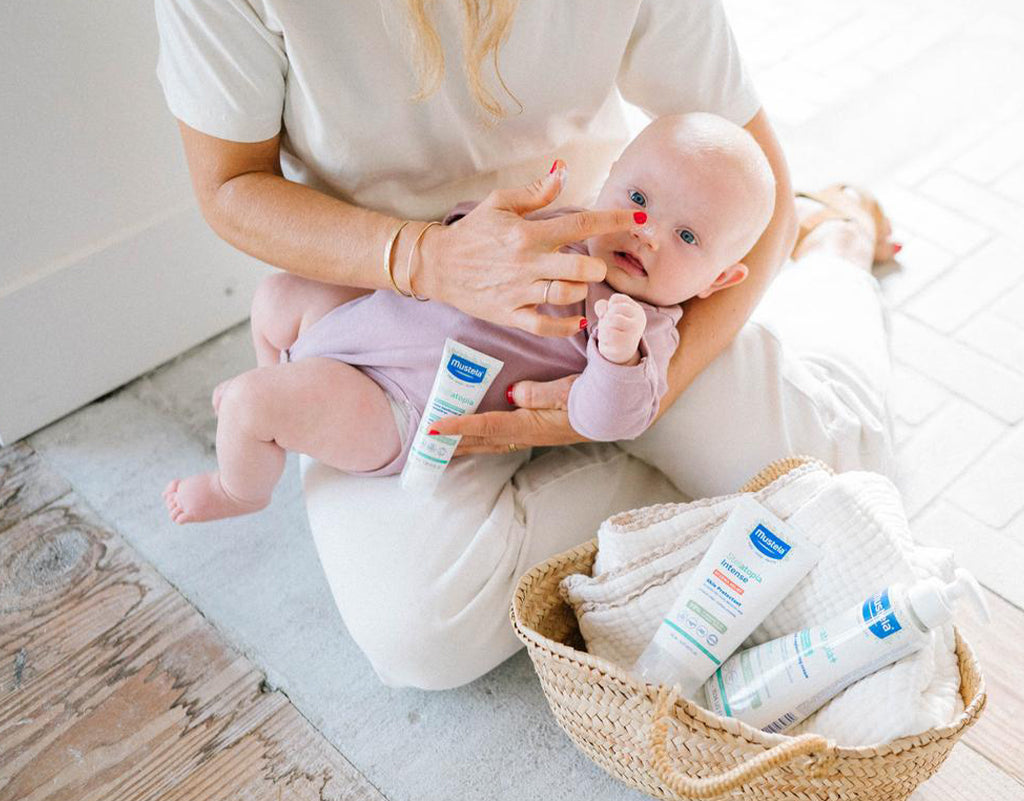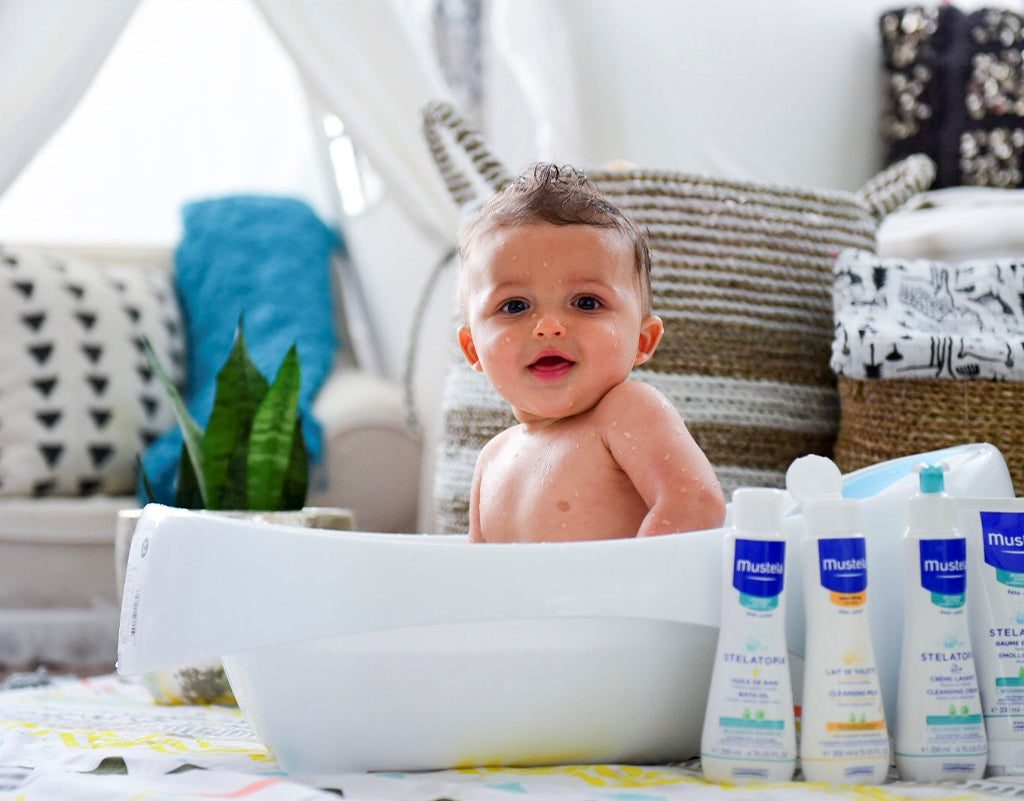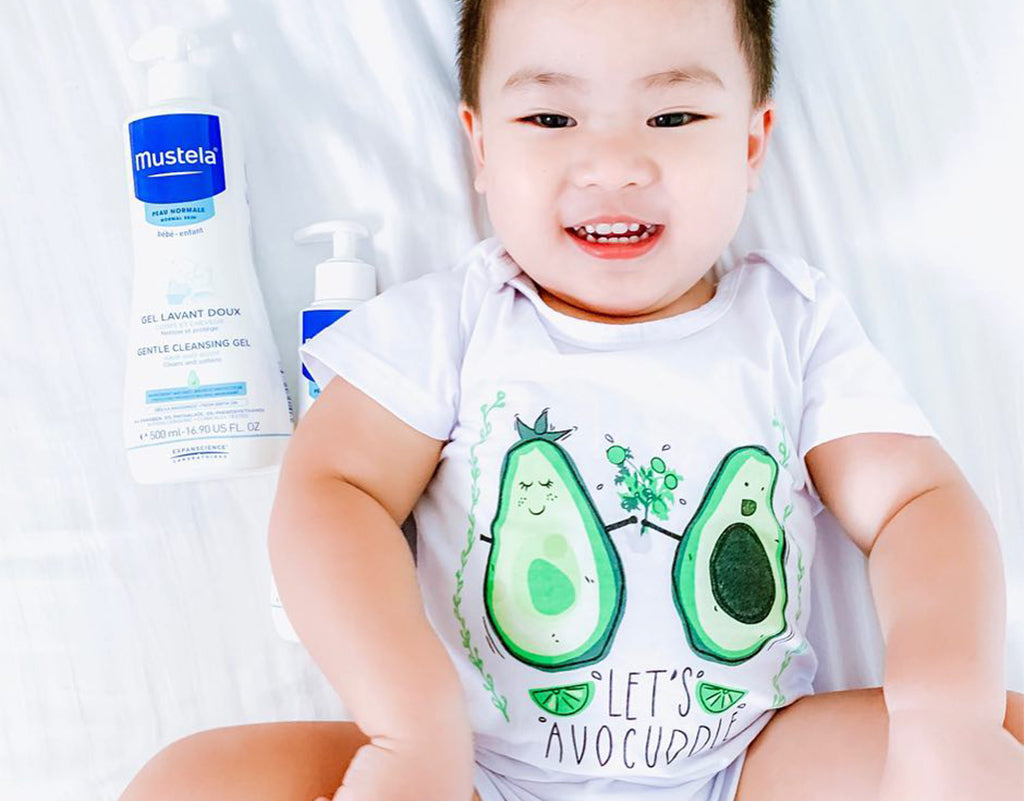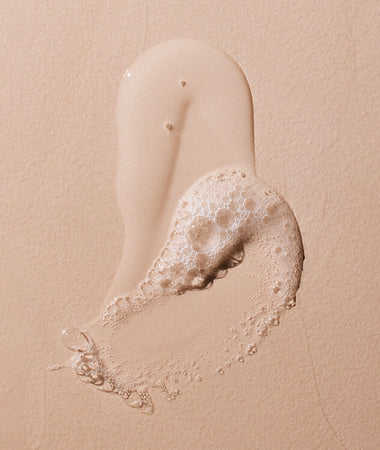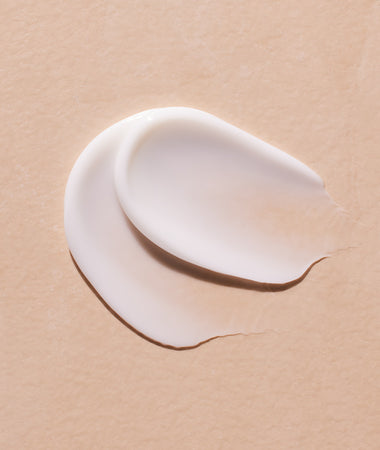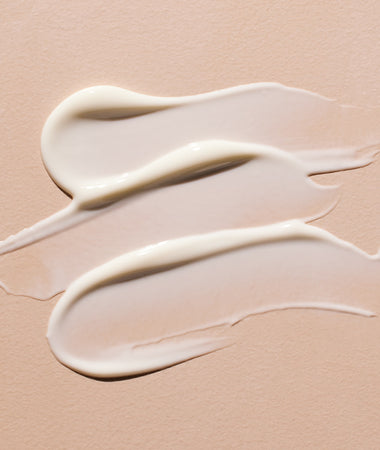
Baby Eczema On Face: Symptoms, Causes, And Treatment
Have you noticed red, itchy patches on your little one’s delicate cheeks or forehead and wondered what it could be? It could be baby eczema on the face, a common skin condition that affects many infants and young children.
While there’s no cure for eczema, you can take steps to manage and treat your baby’s symptoms. In this guide, we’ll cover everything you need to know about baby eczema on the face, from its symptoms and causes to treatment options.
Table Of Contents
- What Is Eczema?
- Symptoms Of Baby Eczema On The Face
- What Causes Baby Eczema?
- Treating Baby Eczema On The Face
What Is Eczema?

Eczema is a common skin condition that causes inflammation and itchiness. In the United States, about one in ten children develop eczema.
Of the different types of eczema, atopic dermatitis is the most common. That’s the sort we’re going to focus on in this article.
Who Gets Eczema?
Eczema can affect anyone. However, babies and children are most likely to develop this condition. About 60% of people with eczema were diagnosed before their first birthday.
While eczema isn’t contagious, it does tend to run in families. If you or your partner have it, your child is more likely to develop the condition. Parental allergies and asthma are also risk factors for baby eczema.
Where Does Eczema Occur?
Your baby can develop eczema anywhere on their body. However, you’ll most often notice symptoms on the:
- Face
- Hands
- Feet
- Arms and legs
Baby eczema on the face is most often on the cheeks and chin. It can also affect your little one’s forehead, nose, or scalp.
Symptoms Of Baby Eczema On The Face
Eczema typically results in patches of dry, itchy skin. You may also notice the following symptoms:
- Redness
- Trouble sleeping
- Crusting or oozing skin
- Peeling areas
- Skin feels rough to the touch
- Swelling
- Dark-colored patches
- Thickened skin
Eczema doesn’t affect everyone the same way. It can be mild or severe. In addition, your baby’s eczema may seem to come and go throughout their early years. This is normal, as the condition can flare up due to specific triggers, which we’ll discuss later.
What Causes Baby Eczema?
Scientists have yet to determine the exact cause of eczema. It’s believed to be a combination of genetic and environmental factors.
Let’s look at a few known contributors.
Skin Irritants
All babies have sensitive skin. But for babies with eczema, certain ingredients and fabrics can irritate their skin more than normal.
Common irritants include:
- Laundry detergent
- Scented fabric softeners
- Perfumes
- Harsh soaps
- Hot water
- Wool
- Synthetic materials
Allergens
Babies with allergies are more likely to develop eczema. Allergies can fall into two main categories: environmental and food.
Environmental allergies include dust mites, pollen, and pet dander. Common food allergies are dairy, eggs, soy, and wheat.
If you suspect your baby has allergies, consult their pediatrician for testing and confirmation. This way, you know for sure what foods or other allergens to avoid.
Genetics
As we mentioned earlier, eczema is believed to have a genetic component, though scientists are still trying to pinpoint the specific genes involved. The current theory is that babies with eczema may have a mutation in the FLG gene, which affects the production of filaggrin.
Filaggrin is a protein that helps maintain the skin barrier and lock in moisture. When there’s a problem with this gene, it weakens the skin barrier, making it easier for irritants and allergens to enter the body.
Triggers
Even if your baby has a genetic predisposition to eczema, it doesn’t mean they’ll automatically develop the condition. Certain triggers can cause flare-ups or worsen existing symptoms.
Some common eczema triggers include:
- Stress
- Extreme temperatures (hot or cold)
- Dry skin
- Sweat
- Dry air
- Dust mites
- Smoke
It can take time to determine what triggers your baby’s eczema. Keeping a skin log can help you identify patterns.
Treating Baby Eczema On The Face
Now that you know more about baby eczema on the face, let’s discuss ways to help treat and manage this condition.
Avoid Triggers
Once you’ve identified your child’s triggers, minimize or avoid exposure. For example, if dry air worsens your baby’s skin, use a humidifier in their room to try to raise the amount of moisture in the air.
If dust mites are a problem, regularly wash their bedding and vacuum the carpet often to help reduce the amount of dust in their environment.
Here are some other ideas for managing exposure to triggers:
- Dress your child in light, breathable clothing
- Use mild, fragrance-free products on their skin and avoid harsh chemicals
- Keep their bath time short and use lukewarm water
- Integrate play time into the day and plenty of rest to help reduce stress
- Minimize your child’s time around people who smoke or around areas with high levels of air pollution
While you may be unable to avoid all triggers, being intentional about them can help keep your baby’s skin looking (and feeling) better.
Implement A Simple Skincare Routine
Keeping your baby’s skin clean and moisturized is key to managing their eczema. But you also need their skincare routine to be manageable so you can be consistent.
Here’s an example of a simple skincare routine you can implement:
- Give your baby a quick bath every day. Use lukewarm water and products designed for eczema-prone skin, such as our Stelatopia Cleansing Gel.
- Apply a gentle moisturizer immediately after bathing while their skin is still damp. Our Stelatopia Emollient Face Cream is an excellent option.
- Use mineral sunscreen on babies over six months old
These three steps won’t take long, but they can make a big difference in your baby’s skin health.
Try Home Remedies
In addition to an eczema-friendly skincare routine, you can try some natural home remedies to alleviate your baby’s symptoms. You may need to experiment to find the right therapy for your child since everyone’s eczema is different.
Here are a few options to consider.
Oatmeal Baths
Adding ground-up oatmeal to your baby’s bath water can help soothe their skin and reduce inflammation.
Cool Compresses
If the eczema itch is bothering your baby, a cold compress can help. Simply soak a cotton cloth in cold water, then wring it out.
Place it on the itchy patch and hold it there for a few minutes. Remember to moisturize the area when you remove the compress.
Avocado Paste
Extracts from avocados can help relieve symptoms and hydrate your baby’s skin. If you don’t want to rub a squished-up avocado on their face, try our Stelatopia Intense Eczema Relief instead.
Its Avocado Perseose and other natural ingredients help restore the skin’s moisture barrier. Plus, the formula is dermatologist and pediatrician-tested, so you can feel good about using it on your little one’s delicate skin.
Sunflower Seed Oil
Sunflower seeds are known for their anti-inflammatory properties, which can help eczema. Apply a small amount of this oil to your baby’s skin.
You can also look for skincare products that use sunflower oil, such as our Stelatopia+ Lipid Replenishing Cream Pump. It continuously nourishes and moisturizes your baby’s skin for up to 24 hours after application.
The gentle formula is a great addition to their daily skincare routine.
Oil Bath
Bathing in water can remove moisture from the skin. But adding a couple of drops of Stelatopia Cleansing Oil to the bath water can help minimize this loss and replenish your baby’s natural oils.
However, the oil will make the bathtub slippery, so be cautious when taking your little one out of the water.
Moisturize
Dry skin can worsen eczema, so take steps to keep your little one’s skin hydrated. After bathing, apply a gentle moisturizer designed for babies with eczema-prone skin.
You may also need additional moisturizer throughout the day, especially during an eczema flare-up. Look for a non-greasy formula that absorbs quickly.
Talk To Your Doctor About Medications
Sometimes, home remedies aren’t enough to clear your child’s eczema. Discuss their skin with their doctor if their symptoms aren't improving.
The medical team can help you develop a treatment plan. This could include medication or a change in your child’s skincare routine. They may also suggest specific products to use during flare-ups.
While medications can be helpful, they can also have side effects. Your doctor will discuss these with you and ensure the benefits outweigh the potential risks.
Soothe Your Baby’s Eczema With Mustela
Baby eczema on the face can be uncomfortable for your little one and stressful for you. But with a consistent skincare routine and gentle products, you can soothe your baby’s eczema and help them find relief.
Mustela offers a wide range of products specially formulated for babies and children with eczema-prone skin. This line is gentle, hypoallergenic, fragrance-free, and chock-full of natural ingredients that nourish and moisturize your baby’s skin.
So don’t wait; try Mustela today and see the difference it can make. Your child deserves to feel comfortable in their own skin!
- reg.
- $22.00
- Sale price
-
$22.00
- reg.
-
reg.
- Unit price
- /per
- reg.
- $22.00
- Sale price
-
$22.00
- reg.
-
reg.
- Unit price
- /per
Suggested Articles
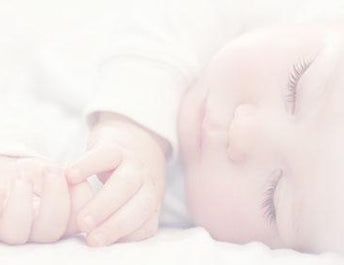
Your Baby Has Eczema-Prone Skin
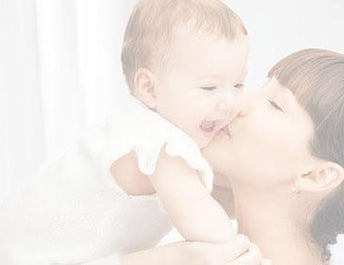
Your Baby's Skin: Intolerant And Easily Irritated Skin

Dry and Eczema Prone Baby Skin
Get tips, news
and exclusive offers

